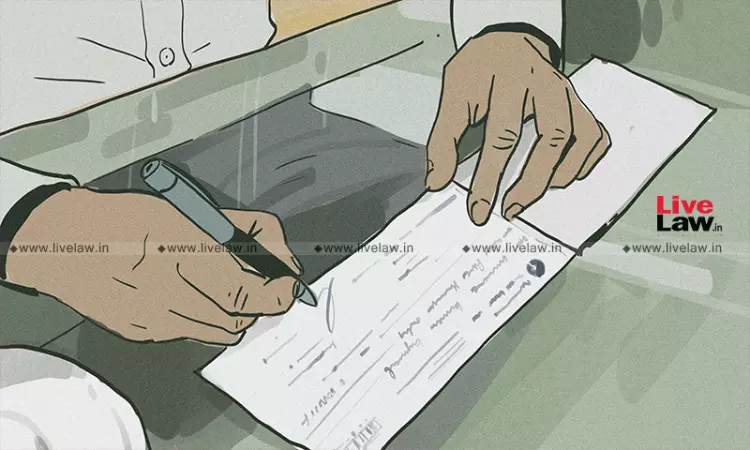- Home
- /
- High Courts
- /
- Kerala High Court
- /
- Bank Liable For Loss Caused By...
Bank Liable For Loss Caused By Negligently Encashing Cheques With Forged Signatures : Kerala High Court
Rizmi Lia
18 Jun 2025 2:05 PM IST
The Kerala High Court has emphasized that banks cannot escape liability after negligently encashing cheques with forged signatures.The Division Bench comprising Justice Sathish Ninan and Justice P. Krishna Kumar delivered the judgment in a batch of appeals filed by the plaintiffs, all private companies or individuals operating out of Kozhikode, against the dismissal of their suits by...
The Kerala High Court has emphasized that banks cannot escape liability after negligently encashing cheques with forged signatures.
The Division Bench comprising Justice Sathish Ninan and Justice P. Krishna Kumar delivered the judgment in a batch of appeals filed by the plaintiffs, all private companies or individuals operating out of Kozhikode, against the dismissal of their suits by the Additional Sub Court, Kozhikode.
The appellants had filed separate money suits alleging that 47 cheques from their accounts were encashed by the defendant, Bank of Baroda (earlier Vijaya Bank), despite bearing forged signatures of the authorised signatories. While 15 of these cheques had amounts returned or credited back, the proceeds of 32 cheques were paid out to third parties, resulting in financial loss.
The trial court had dismissed the suits, holding that the plaintiffs failed to substantiate their claims with adequate evidence and that the pleadings on fraud were insufficient.
The High Court relied on the ruling in Canara Bank v. Canara Sales Corporation and Ors. [1987 (2) SCC 666] which held that “..... Whenever a cheque purporting to be by a customer is presented before a bank it carries a mandate to the bank to pay. If a cheque is forged there is no such mandate. The bank can escape liability only if it can establish knowledge to the customer of the forgery in the cheques…..”
Based on this, the court held that,
“The incidents in relation to the cheques in question occurred within a period of three months. As soon as it was detected by the plaintiffs, steps were taken. It could not be established, nor was it attempted to prove, that the plaintiffs had knowledge of the forgery prior to its encashment. Hence it can only be concluded that the Bank is liable for having effected payment of the forged cheques.”
Therefore, the court reiterated that a bank can escape liability in such cases only if it is established that the customer was aware of the forgery.
The High Court set aside the trial court's dismissal of the money recovery suits after finding that the bank had acted negligently. The Bench found that the trial court misunderstood the case by treating it as one based on fraud, rather than on the bank's failure to exercise due care. It held that the lower court had erred in shifting the burden of proof onto the plaintiffs.
Given these findings, the High Court ruled in favour of the plaintiffs and allowed them to recover the amounts lost due to the forged cheque encashments. The Court also awarded interest at 6% per annum from the date the suits were filed until the amounts are realised.
Case No. RFA NO. 401 OF 2015 and other connected cases.
Case Title: R Ramesh v, Vijaya Bank & ors and connected cases
Citation: 2025 LiveLaw (Ker) 343
Counsel for the Petitioner: Advs. Shri.Biju Abraham and Sri.B.G.Bhaskar
Counsel For The Respondents: Adv. Smt.Latha Anand,Standing Counsel, Vijaya Bank
Click Here To Read/ Download Order



